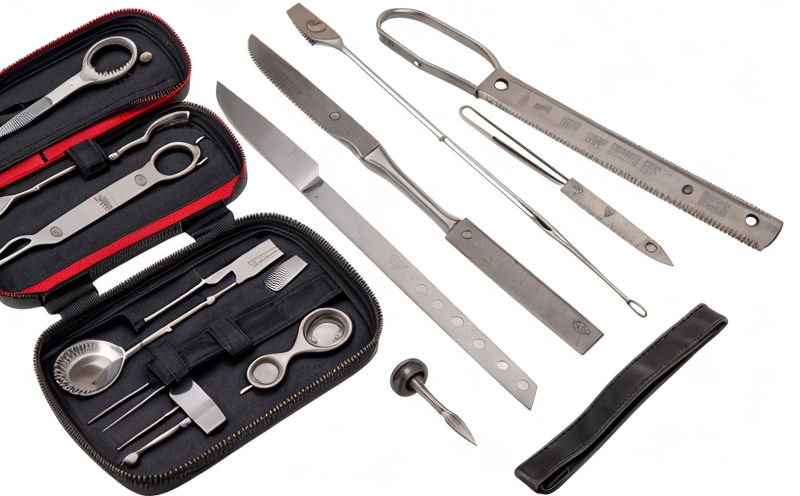Residual Hemoglobin Testing on Surgical Instruments
In the field of medical device testing, ensuring the safety and efficacy of surgical instruments is paramount. One critical aspect of this scrutiny is residual hemoglobin testing. Residual hemoglobin refers to the leftover blood components that may remain adhered to surgical instruments after use during operations. This can pose significant health risks if not detected and removed adequately.
The presence of residual hemoglobin on surgical tools can lead to infections, particularly in patients with compromised immune systems or those undergoing complex procedures. Therefore, stringent testing protocols are essential to guarantee that these instruments meet the highest standards of cleanliness and sterility.
Our laboratory specializes in providing comprehensive residual hemoglobin testing services for a wide range of surgical instruments, including scalpels, forceps, retractors, and other tools used in various medical procedures. Our expertise lies in ensuring that these instruments are free from any traceable amounts of residual hemoglobin as per international standards such as ISO 17895:2016.
Our testing process involves meticulous sampling techniques to collect representative samples from different parts of the instrument, followed by rigorous analysis using advanced spectrophotometric methods. This ensures accurate quantification and identification of residual hemoglobin levels. The results are reported promptly along with detailed recommendations for any necessary cleaning or disinfection processes.
By offering this specialized testing service, we support healthcare providers in maintaining the highest levels of patient safety and compliance with regulatory requirements. Our commitment to excellence ensures that every instrument tested adheres strictly to industry standards and guidelines set forth by relevant authorities worldwide.
| Step | Description |
|---|---|
| Sample Collection | Representative samples are taken from various surfaces of the instrument. |
| Spectrophotometric Analysis | Analyzed using advanced spectrophotometry to measure hemoglobin content. |
| Results Interpretation | Evaluates the results against specified thresholds for acceptable levels of residual hemoglobin. |
| Reporting | Comprehensive reports detailing findings and recommendations are provided to clients. |
Scope and Methodology
The scope of our residual hemoglobin testing service encompasses a variety of surgical instruments commonly used in healthcare settings. These include scalpels, scissors, retractors, forceps, clamps, and other tools that come into direct contact with patient blood during surgeries.
| Instrument Type | Description |
|---|---|
| Scalpel | A sharp instrument used to make incisions in the skin and underlying tissues. |
| Scissors | Used for precise cutting of tissue or suturing materials. |
| Retractors | Devices used to hold back tissue so that surgical instruments can access the operative site. |
| Forceps | Grasping and holding tools designed for delicate manipulation of tissues or other small objects. |
The methodology we employ adheres strictly to international standards like ISO 17895:2016, which provides guidelines on how to conduct residual hemoglobin testing effectively. Our approach includes sample collection techniques that ensure representativeness across all tested instruments.
Why Choose This Test
- To comply with stringent regulatory requirements set by health authorities worldwide.
- To enhance patient safety by minimizing the risk of post-operative infections caused by residual hemoglobin.
- To ensure surgical instruments meet industry standards and best practices for sterilization and disinfection.
- To provide detailed insights into the effectiveness of cleaning protocols employed in healthcare facilities.
Customer Impact and Satisfaction
By choosing our residual hemoglobin testing service, customers gain peace of mind knowing that they are adhering to strict regulatory standards. This not only enhances patient safety but also improves overall satisfaction among healthcare providers who rely on these instruments for critical procedures.
We pride ourselves on delivering accurate and reliable results within a short turnaround time, allowing hospitals and clinics to quickly integrate this information into their quality control processes. Our comprehensive reports offer actionable recommendations that help facilities continuously improve their cleaning and sterilization methods.





